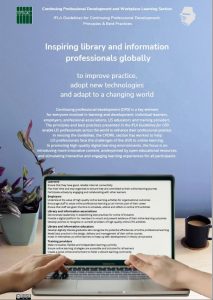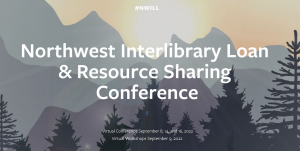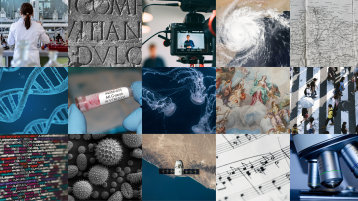I know – the title may provoke, but by the end of this text, it will hopefully seem comprehensible and justified.

As senior lecturer at a Swedish university offering educational programs in Library and information science (LIS), I sometimes get questions and comments about the training of future librarians. Often it is about what aspiring librarians should know and how this is best taught. It is striking how engaging the issue of librarians’ competence is – the various opinions come from widely different quarters. Sometimes librarians’ work is even proposed as the answer to major societal challenges such as reawakening young people’s lust to read and strengthening citizens’ digital skills.
In addition to the outside world’s expectations of the profession, there is an internal tendency to problematize the professional role and competence. That debate has recurred over decades in trade press, mailing lists and social media. In parallel, research is conducted with the aim of understanding, challenging, equipping and ideally inspiring the profession, and the production of Bachelor and Master theses at our universities testifies to the interest in profession-related topics among students. Their small-scale research contributions are quick-footed and likely to delve into the field’s hottest questions.
Debate and recurring discussions are sometimes interpreted as the profession facing a crisis. For my own part, however, I am both optimistic and incurably curious (the researcher’s occupational injury?). I see vivid discussion as an expression of the importance of libraries for the country’s inhabitants, and internal debate as a sign of vitality. Few professions show such spark! The need for discussion can be linked to the history of the profession; the professionalization process of the past century, amalgamated professional organizations, academisation of training and the establishment of the LIS discipline. Today the profession is powerfully organized, but at the same time it spans disparate activities.
As a natural reaction to societal developments, and perhaps as a backlash for the unifying professional project, new competences are called for in libraries, and more specialized training.
Another important aspect of the position of librarianship today, is its quality as a welfare profession; one of the female-intensive occupations that have thrived within the Nordic welfare hub. Ambivalence towards the profession’s theoretical basis is typical, and compared to classic professions, the welfare professions are less hierarchical, more collaborative and highly focused on the clients. I know from experience, that responsiveness to users’ needs and interests is a shining beacon for aspiring and active librarians, regardless of library type.
Surely that sounds nice? But every medal has its flip side. The emphasis on responsiveness, commitment, and (often) idealism, can make librarians stretch far in their compliance. Always being prepared to tone down competitive thinking and professional pretensions out of consideration for the interests of others, is an attitude that risks backfiring. For an illustration of this dilemma of a welfare profession, we may turn to the children’s librarians – a group that was early associated with selfless work of the “vocational type”. We’d like to think that image faded decades ago, but my research into the competence of children’s librarians was an eye-opener.
The participants in my study said they appreciated the rich opportunities for competence development as well as their chance to influence its content. But several librarians also described dissatisfaction with the overly free choices and the perceived lack of managerial steering of the knowledge-developing activities. Rather than seeing the collective competence as a strategic resource for the workplace, competence development was often treated as an encouraging ‘salary benefit’. Several managers also hesitated in connection with my interview question concerning what incentives they saw for children’s librarians’ competence development. Their answers were that the librarians’ heartfelt meetings with the users – in this case children who love to read – were to be regarded as both a driving force and a reward.
Get me right – trusting relationships and personal appreciation are worth their weight in gold in everyday work, but should we really, in 2022, regard professional work as its own reward? Such an approach, with the logic of the old “vocation” just below the surface, undeniably brings to mind non-profit and amateur work.
There is no room here for the follow-up questions that need to be asked. I end by stating that those concerned with how the librarian profession can be strengthened for the future, should pay attention to where the boundaries are drawn between professional and personal commitment. As a representative of research and higher education, I want to promote a reflective professional practice, where sensitivity to the outside world is complemented by research-oriented and proactive working methods; an ambition that probably applies to most universities offering LIS education around the globe.
What do you think – is there reason to push the discussion about the prerequisites and the future of librarianship one step further? I think so.
Jenny Lindberg
Lecturer at the Swedish School of Library and Information Science, University of Borås, Sweden
Note: This article has previously been published in Swedish at http://www.noll27.se
The study on children’s librarians mentioned in the blog entry is accessible (in Swedish): https://regionbiblioteket.se/publicerat/barnbibliotekariers-kompetens/




